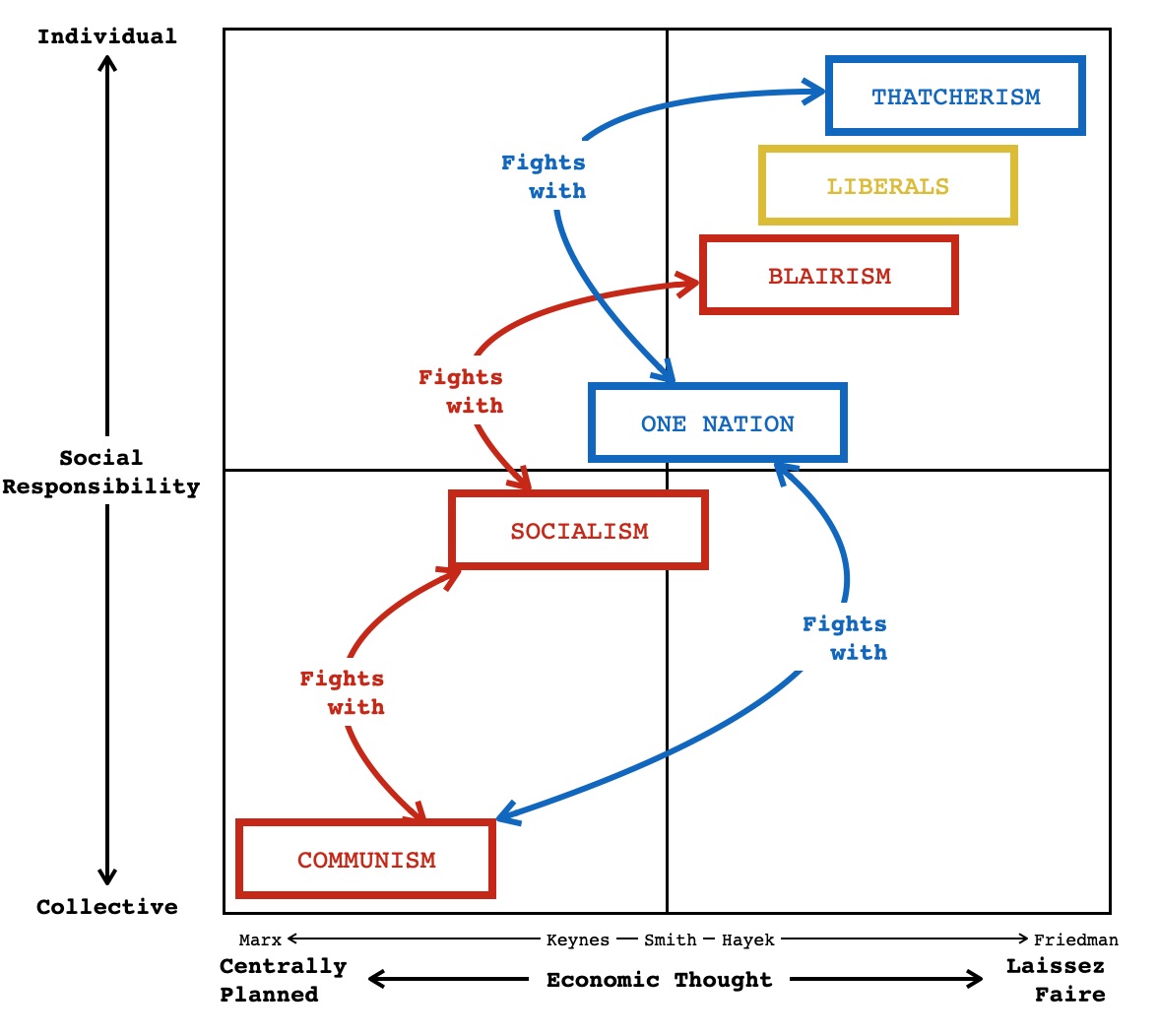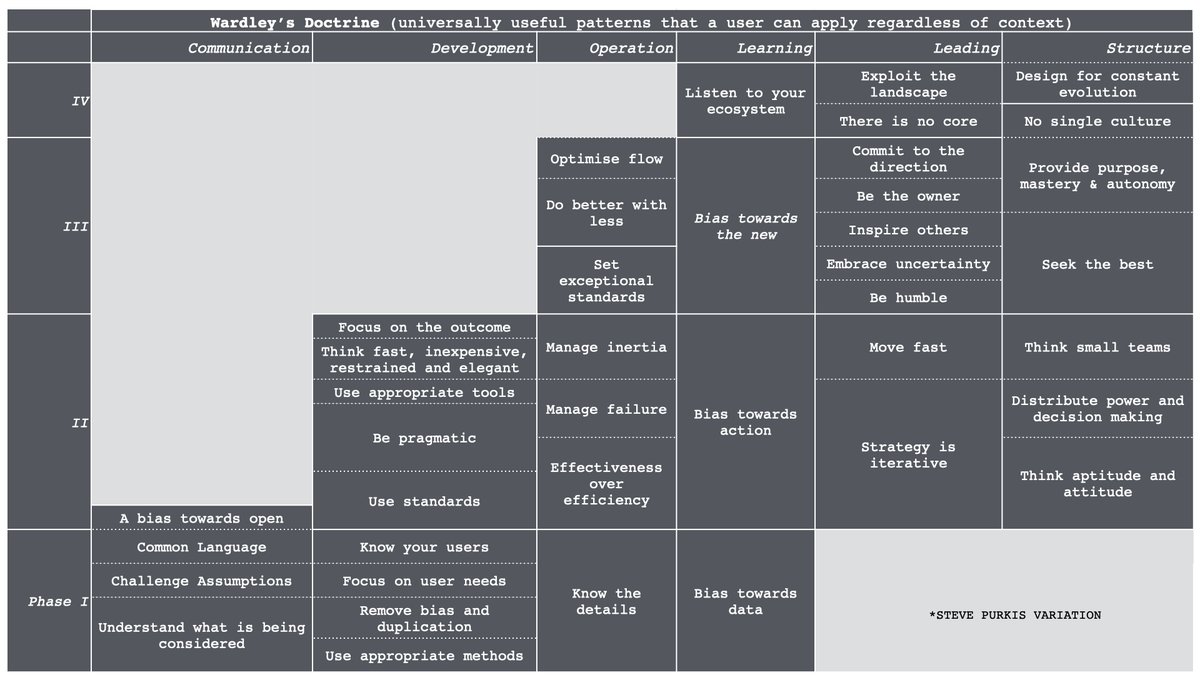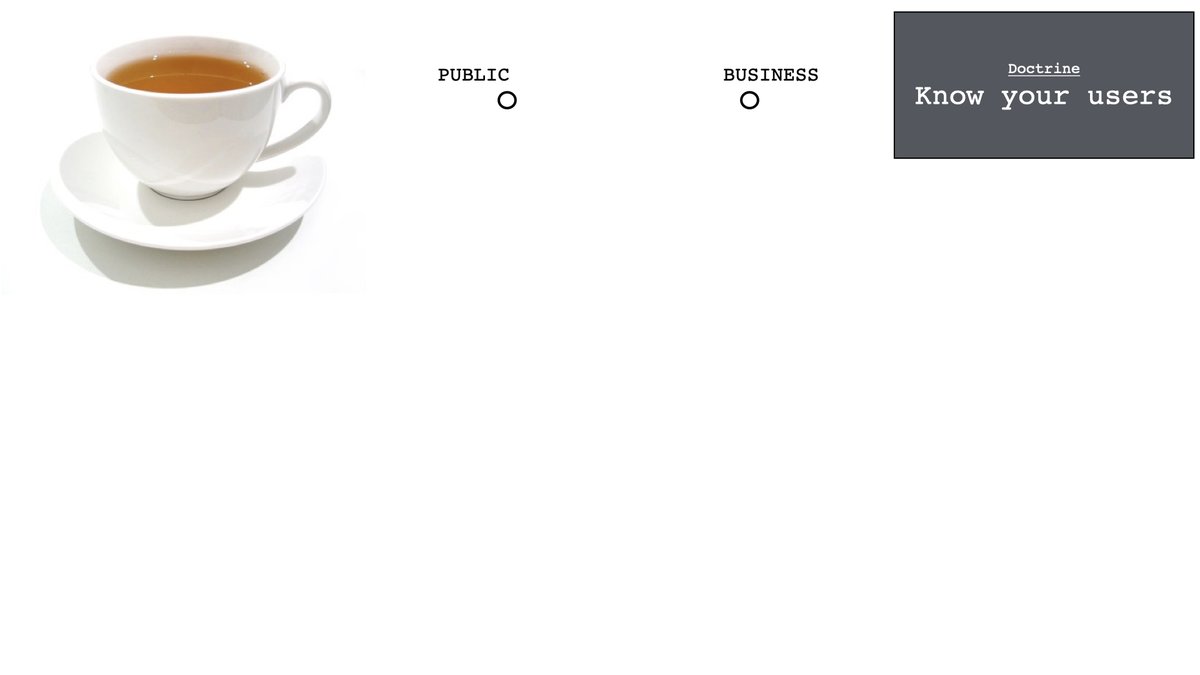
"Fifty-nine percent of those polled said they believed China will become more powerful than the U.S. within 10 years" - politico.eu/article/1-in-3… ... I hate to break it to you but it already is in many areas.
When I published this work (originally from 2015) -
Six years later, less so.
https://twitter.com/swardley/status/690673091949793280- I did tend to get a lot of pushback from US folk when presenting it.
Six years later, less so.
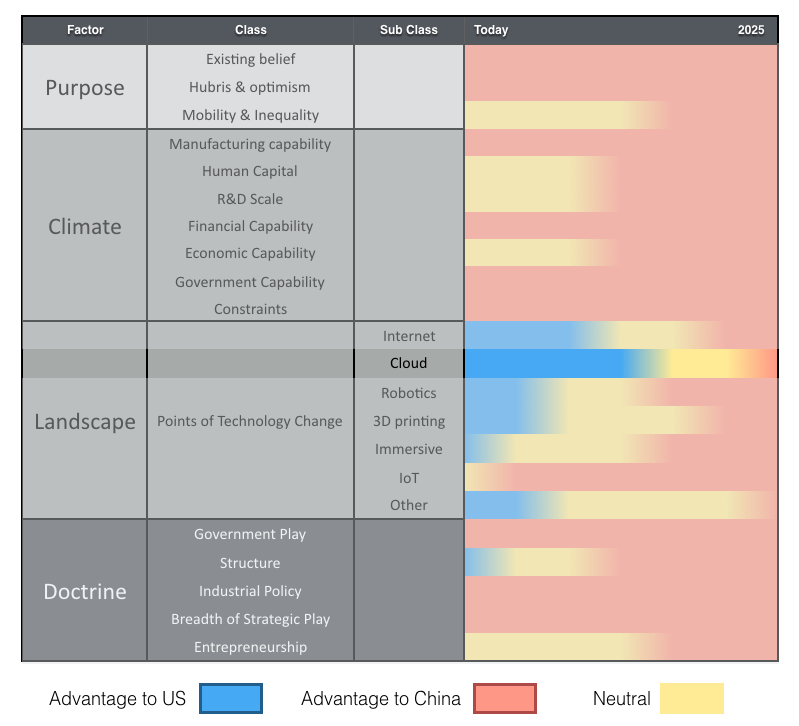
I expect China to start to tackle inequality this year. It's the Achilles heel of the West. We have no response, nor Governments with the required skill, strategy or practice to respond.
We will ultimately face a more advanced, more wealthy and more equal society ...
We will ultimately face a more advanced, more wealthy and more equal society ...
... as that example of what "is possible" / "good looks like" shift to the East, we will face a painful shift as we question our own values including our kind of democracy. But in reality, the problem is not with our values but our shockingly poor standards of leadership.
X : Is this because of Trump?
Me : No, this has been going on since the 1990s. There has been no effective counterplay to the long game that Deng Xiaoping started. Just hubris, arrogance and exceptionalism with annual Economist articles on "How China will fall".
Me : No, this has been going on since the 1990s. There has been no effective counterplay to the long game that Deng Xiaoping started. Just hubris, arrogance and exceptionalism with annual Economist articles on "How China will fall".
X : What can the West do?
Me : Nothing sensible other than to adapt. Longer term, you need to get rid of concepts like the "playing fields of Eton" and revitalise leadership. Start with the whole "Me" vs "We" discussion. It'll be a long journey.
Me : Nothing sensible other than to adapt. Longer term, you need to get rid of concepts like the "playing fields of Eton" and revitalise leadership. Start with the whole "Me" vs "We" discussion. It'll be a long journey.
X : Do you think the West will do this?
Me : You can either do good and educate people or you can manipulate perception and behaviour. The latter is now so cheap (thanks social media), that we will probably respond with more manipulation and denial until it is unsustainable.
Me : You can either do good and educate people or you can manipulate perception and behaviour. The latter is now so cheap (thanks social media), that we will probably respond with more manipulation and denial until it is unsustainable.
X : Why do you think this?
Me : Any discussion (including "Me" vs "We") ultimately will lead you to the woeful state of leadership. You're asking me why a bunch of "leaders" are going to try to avoid any discussion on woeful leadership? Because they don't believe it ...
Me : Any discussion (including "Me" vs "We") ultimately will lead you to the woeful state of leadership. You're asking me why a bunch of "leaders" are going to try to avoid any discussion on woeful leadership? Because they don't believe it ...
... they get paid lots of money, we live in a meritocracy and hence they must be good. Or at least, that's what their internal logic will tell them. Inertia and denial are powerful forces.
X : I'd argue that even the supposed internet advantage is not so true.
Me : "Today", in that table, was 2015. We're half way through it.
Me : "Today", in that table, was 2015. We're half way through it.
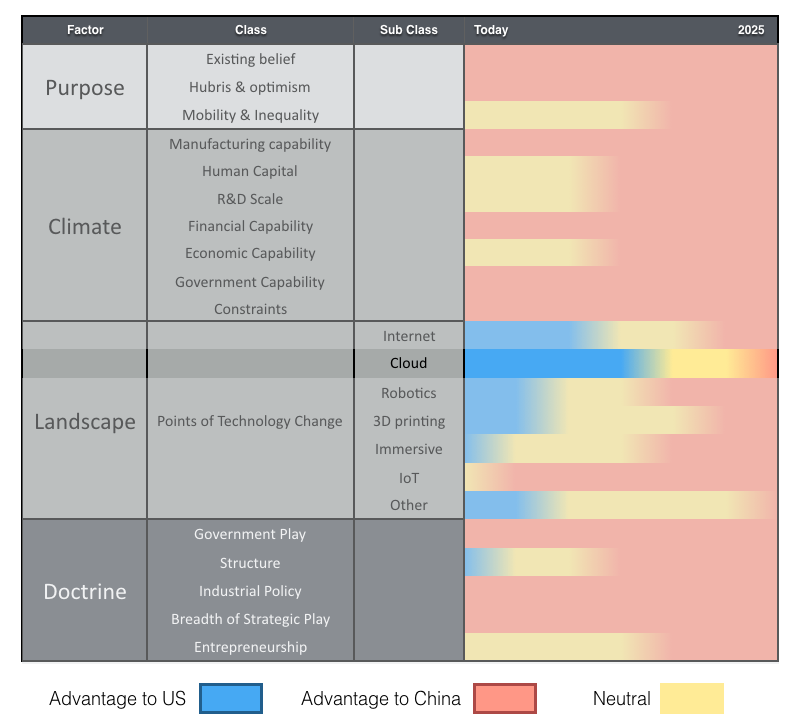
X : How quickly can the West respond?
Me : It's a long game. You'd have to rewire education especially in the US. Even basic economic understanding is distorted through belief in that culture's past success. So, unlikely in your lifetime even if you set off with good speed.
Me : It's a long game. You'd have to rewire education especially in the US. Even basic economic understanding is distorted through belief in that culture's past success. So, unlikely in your lifetime even if you set off with good speed.
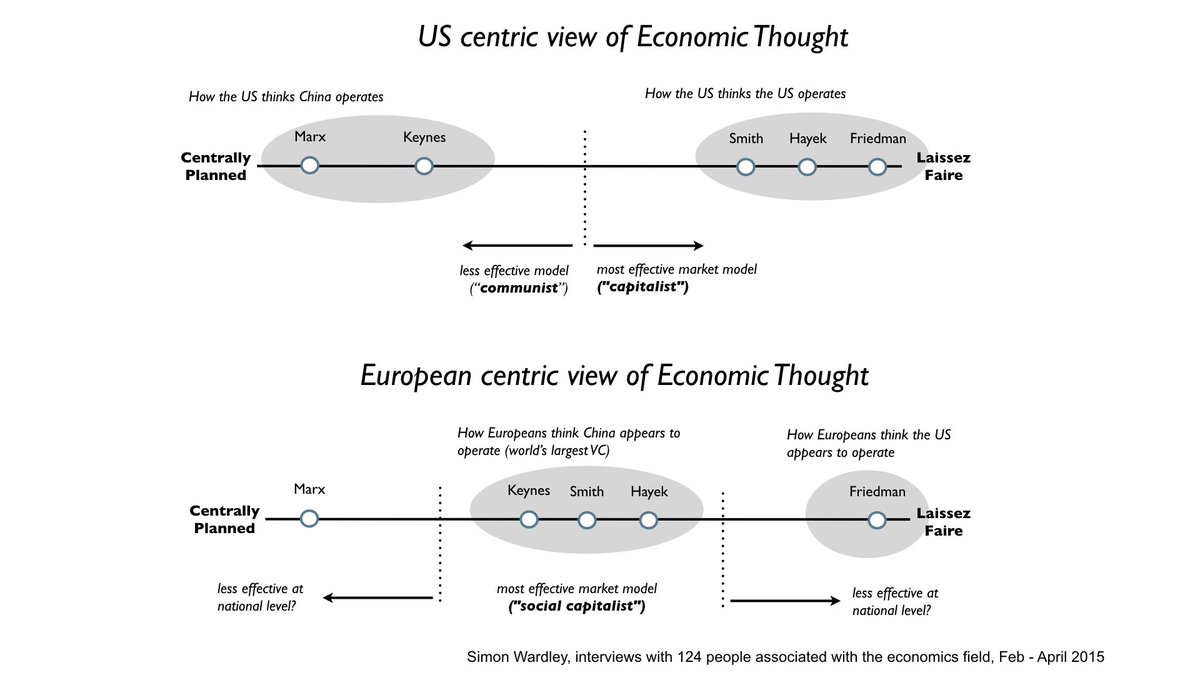
X : What does that mean?
Me : The next hundred years belong to China. Learn to adapt.
Me : The next hundred years belong to China. Learn to adapt.
X : What about the pandemic?
Me : China "managed" it last year. They're rapidly growing - bangkokpost.com/business/20529… ... we're still messing around with not doing lockdown properly, failing on test and trace, not learning, arguing over masks and hoping vaccines will sort it all out.
Me : China "managed" it last year. They're rapidly growing - bangkokpost.com/business/20529… ... we're still messing around with not doing lockdown properly, failing on test and trace, not learning, arguing over masks and hoping vaccines will sort it all out.
X : You're not very patriotic,
Me : Quite the opposite. I believe that love is best shown by a willingness to have those difficult conversations and not by pretending that everything is great.
Me : Quite the opposite. I believe that love is best shown by a willingness to have those difficult conversations and not by pretending that everything is great.
X : GDP is a dreadful measure of the economy.
Me : True but generally people only say that when they don't like what it is saying. If they like what it is saying then it's an excellent measure.
X : But is China's growth sustainable?
Me : Watch China start to "tackle inequality"
Me : True but generally people only say that when they don't like what it is saying. If they like what it is saying then it's an excellent measure.
X : But is China's growth sustainable?
Me : Watch China start to "tackle inequality"
X : What about Alibaba?
Me : Exceptional economic play, mixed model with context. Hats off to China Gov.
Me : Exceptional economic play, mixed model with context. Hats off to China Gov.

• • •
Missing some Tweet in this thread? You can try to
force a refresh

